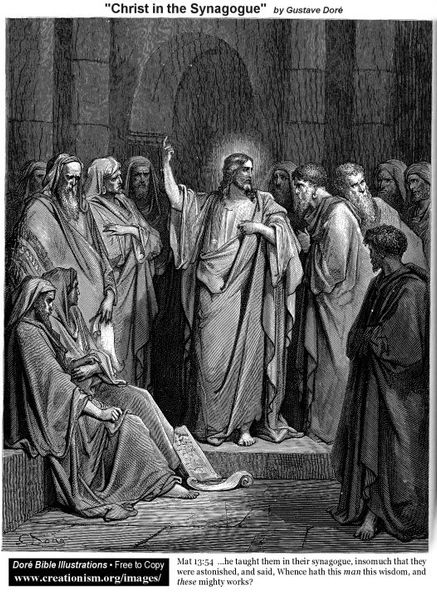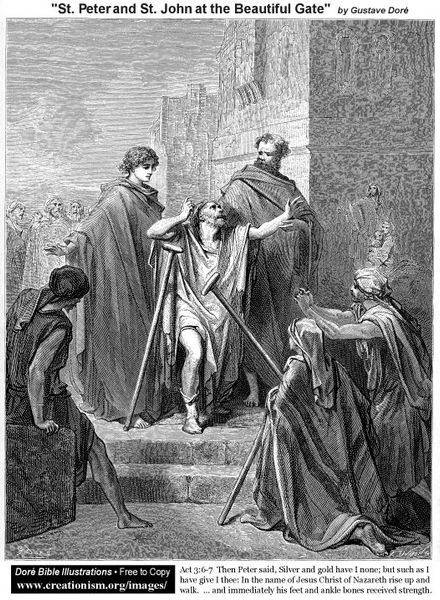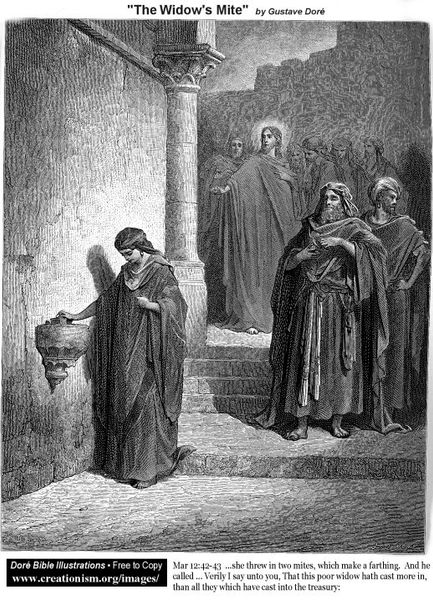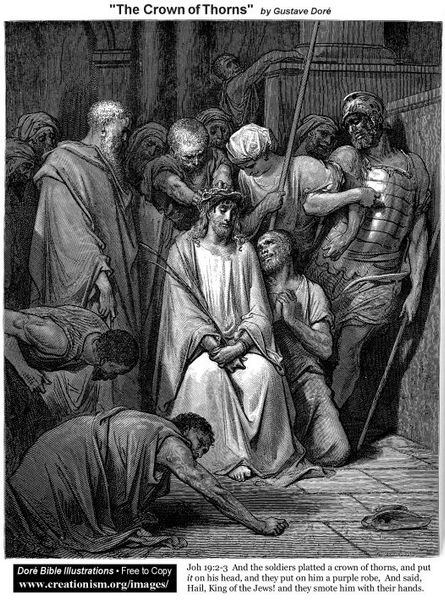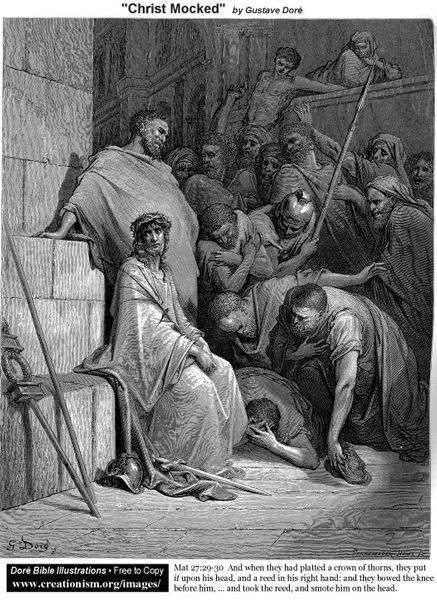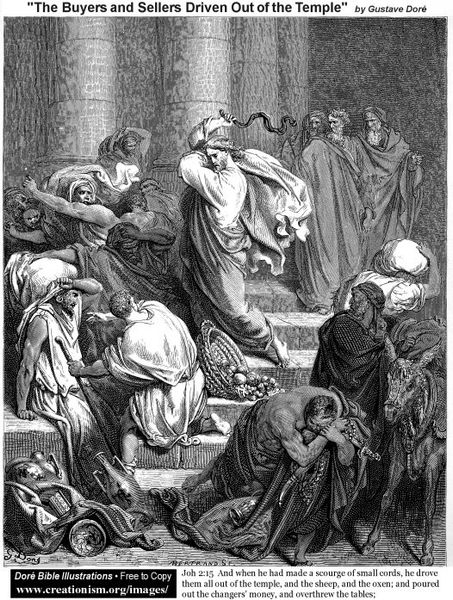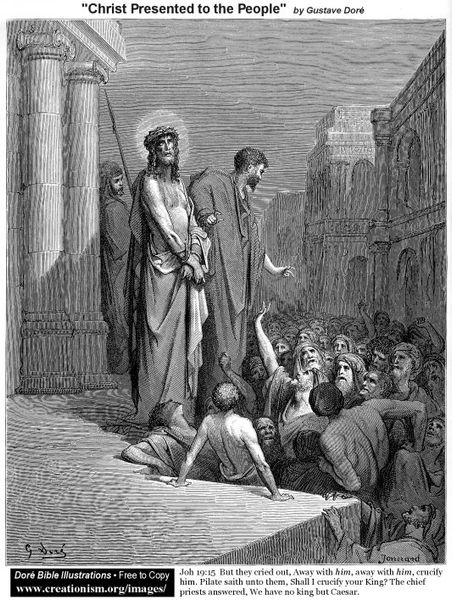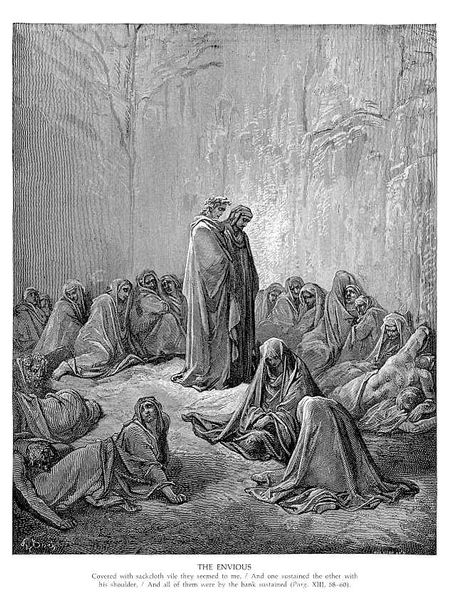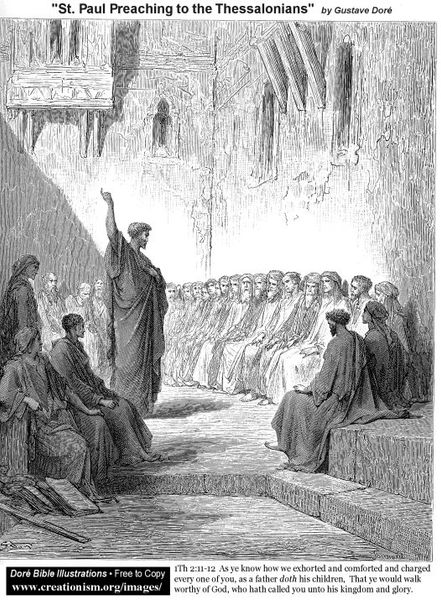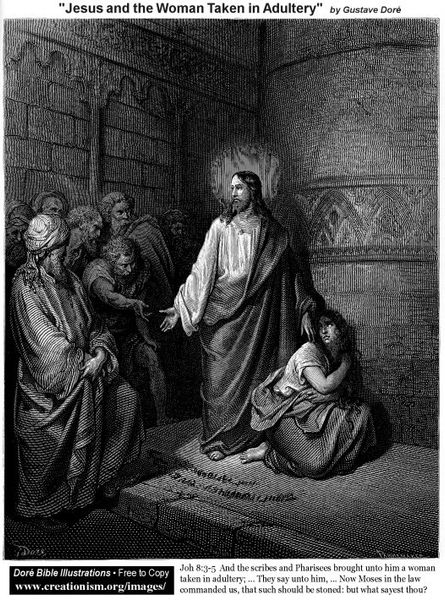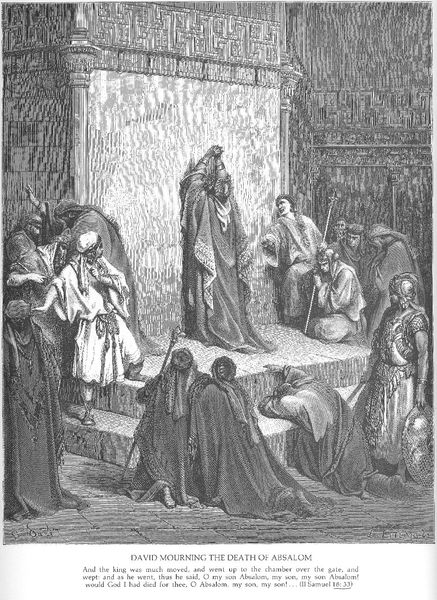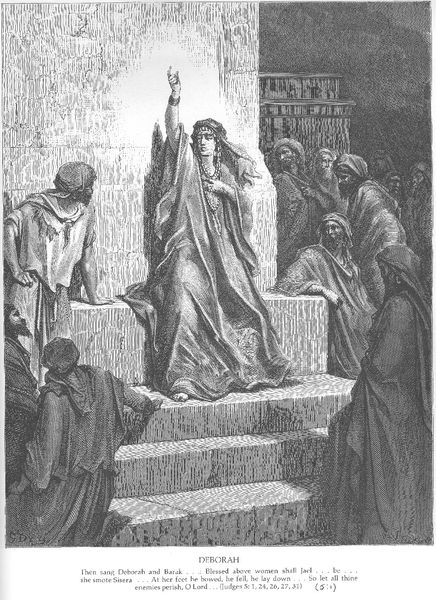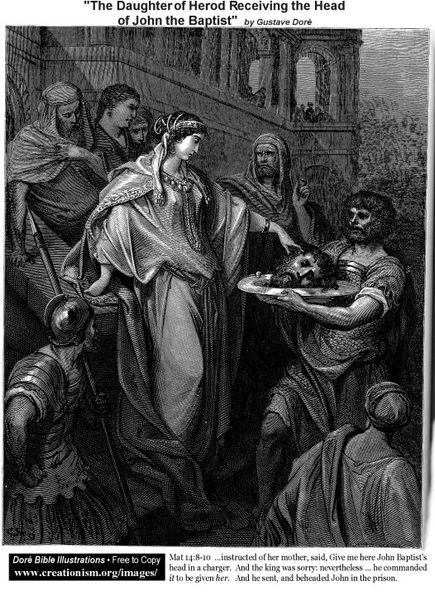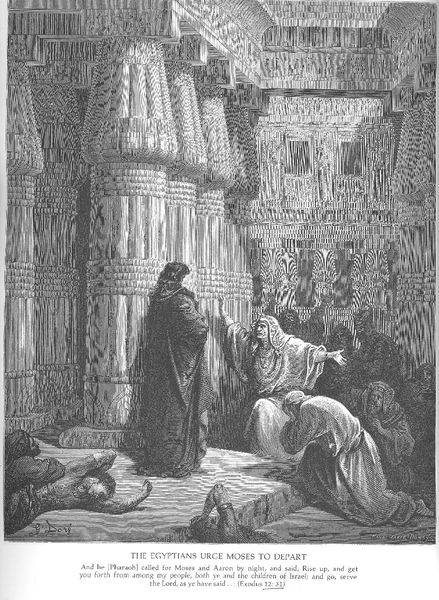
drawing, pen, engraving
#
drawing
#
narrative-art
#
holy-places
#
figuration
#
jesus-christ
#
christianity
#
pen
#
history-painting
#
engraving
#
christ
Copyright: Public domain
Gustave Doré created this image, "Christ and the Tribute Money", during a time of significant shifts in religious and social thought in 19th-century Europe. Doré, rooted in his cultural milieu, illustrates a scene where Christ is questioned about the lawfulness of paying taxes to Caesar, an authority many Jews saw as foreign and oppressive. Doré captures a critical moment of negotiating identity and obligation. Note how Christ, bathed in light, stands in stark contrast to the darker, more suspicious figures surrounding him. The artist masterfully uses light and shadow to express a deep divide between spiritual integrity and earthly power. Render unto Caesar what is Caesar's, and unto God what is God's." This quote encapsulates a complex negotiation of identity under empire, suggesting a way to maintain spiritual autonomy while fulfilling civic duties. Doré invites us to reflect on the tensions between faith, governance, and personal conviction, a poignant reflection during an era grappling with secularization and empire.
Comments
No comments
Be the first to comment and join the conversation on the ultimate creative platform.
